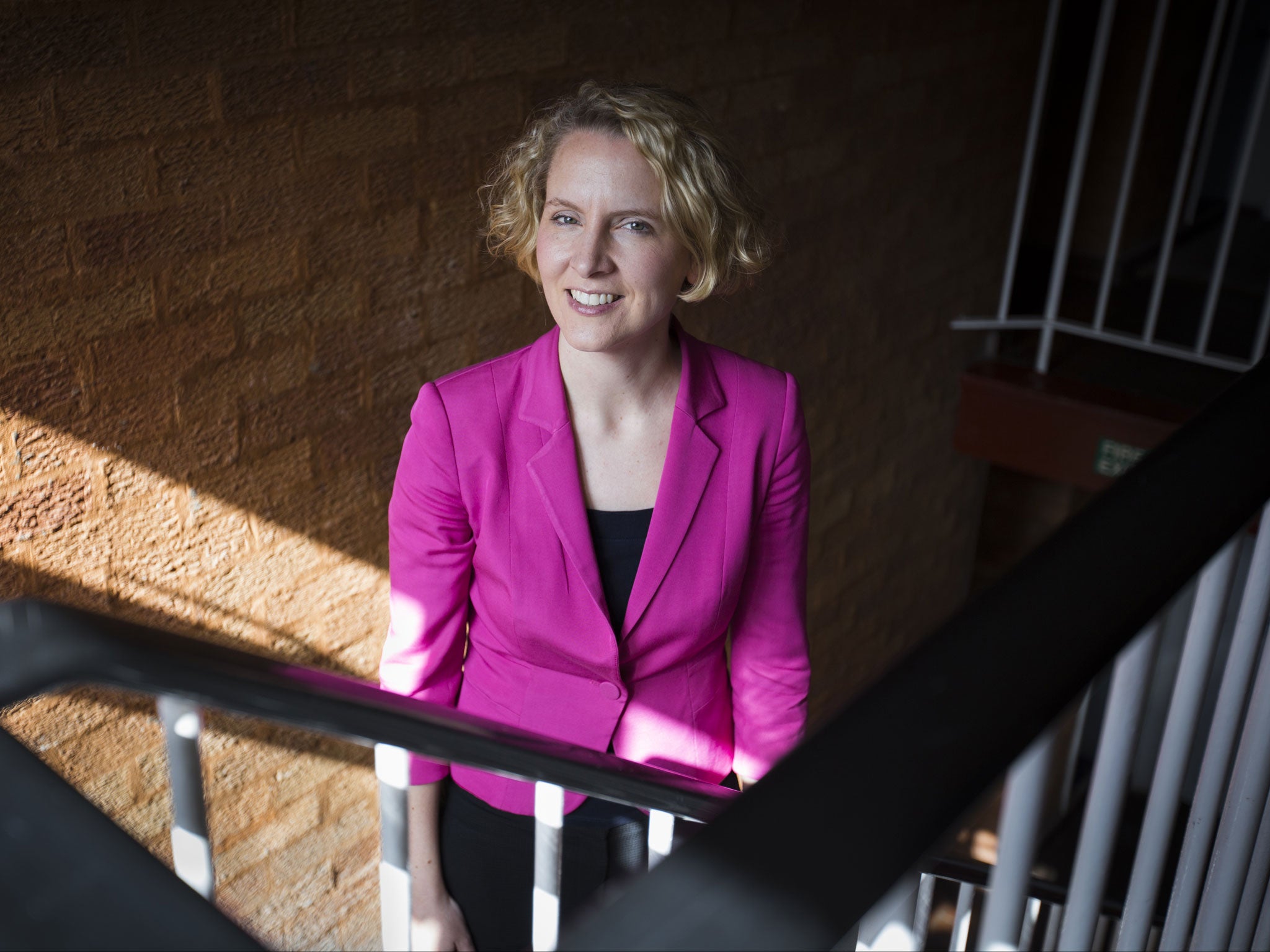Sell off land so people can build their own homes, says Labour minister
Shadow housing minister will challenge power of councils and developers to help self-build projects

People who want to build their own homes will be able to join local “land waiting lists” as part of Labour’s plan to tackle Britain’s housing crisis.
In an interview with The Independent, Emma Reynolds, who six months ago became the party’s shadow Housing minister, said she wanted to make councils sell off small areas of unused or derelict land to people who want to build their own homes.
She suggested the new land waiting lists would give thousands of young people who are priced out of the property market the chance of owning their own homes and help Labour meet its pledge to double the number of houses built across the country every year.
She also believes the move would result in the rapid growth of smaller house builders – often working directly for clients. This would offset the dominance of large developers, which Labour has accused of deliberately hoarding land to restrict supply and boost profits. Ms Reynolds is due to give a speech to the Home Builders Federation tomorrow in which she will also call for a new “contract” between government and developers to significantly increase the number of young people being trained as building apprentices.
Britain still lags behind neighbouring countries; only 10 per cent of the UK’s new homes are self-builds, compared with around 50 per cent in other European countries.
Speaking on a visit to Walsall, West Midlands, Ms Reynolds said she believed this could be changed by putting political pressure on councils to sell spare land to individuals and promoting opportunities for small builders to develop it.
“At the moment all the political pressure is from those who own their own houses and have an interest in the status quo,” she said. “But the people who are not getting a voice are those in their 20s and 30s who desperately want to own but can’t get the deposit.
“Local authorities have a waiting list for social housing but they have no idea of the scale of the need for private housing. So what could you do to give these people a voice and ensure that councillors are also listening to them?
“If we could have a waiting list for plots of land, that would demonstrate to politicians that there is a real need and these people are frozen out. What we are looking at is how we can give a voice to the voiceless.”
Ms Reynolds said the move would also give a boost to small building firms, who tended to complete development projects much faster than larger developers. In the 1980s small builders were building two-thirds of new housing stock but that has now fallen to below a third.
Both Labour and the Conservatives are keen to increase the number of people building their own homes, which they see as a key element to tackle the housing crisis and which both parties believe will be a central issue at the next election.
In last week’s Budget the Government said it would consult on a new Right to Build scheme that would give people a right to a plot from councils and a £150m repayable fund to help provide up to 10,000 serviced plots for custom builders. It will also consider making its Help to Buy equity loan scheme available to custom builders.
But Ms Reynolds said the Government’s new position was too little, too late and suggested that Labour would take a much more interventionist approach to increasing the supply of both private and publicly owned homes.
“I think that the Government’s approach is too laissez-faire – it’s let the market work and it will all be fine,” she said. “We don’t take that approach. We think that central government needs to show leadership and we think there are some fairly fundamental problems with the land market, with the house-building industry which is dominated by a fairly small number of big players.”
Ms Reynolds, who at 36 is one of the youngest members of the shadow Cabinet, returned to the council house in Walsall where she lived as a child after the separation of her parents.She said that, for her, increasing the stock of high- quality social housing was as important as increasing the general supply.
“It’s a very complicated area but I don’t think you should take the emotion out of politics,” she said. “I don’t think about council flats in the abstract because I used to live in a council flat.
“We need to look at what we can do to build more council houses – there are 5,000 people in Walsall alone on the housing waiting list and across the country millions of people waiting. And some of those people will never get one.
“My childhood has shaped the way I see these things and the council here in Walsall threw my mum a lifeline. I don’t know what would have happened had they not.”
She added that while the party’s position on how to increase the stock of social housing had yet to be announced, it would be a radical step forward.
Labour has established a review of its housing policy under the former chief executive of Birmingham City Council Sir Michael Lyons.
It will report in the autumn andis expected to recommend expansion of towns around London, such as Stevenage and Luton, which are currently constrained by council opposition.
Join our commenting forum
Join thought-provoking conversations, follow other Independent readers and see their replies
Comments